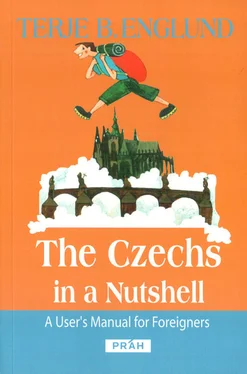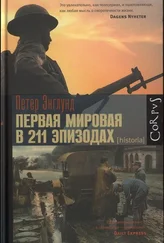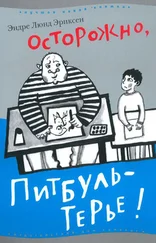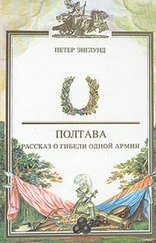However comic this title-mania may seem, a foreigner should take it deadly seriously. Not in the sense that an academic title actually guarantees that its bearer is an educated person. Some of the most vociferous racists in this country sport pompous academic titles (Jiří Karas, a parliamentarian who describes homosexualsas people who need urgent treatment, is both an Ing . and a JUDr. ) and at least one member of the government plus several other big-shots have acquired titles for academic thesis’ which they very likely didn’t write themselves.
The problem is that you may commit a social blunder of significant magnitude if you do not address a Czech with his or her proper title. Actually, more title-crazed individuals (which practically means a vast majority of the population) may even interpret your omission as a deliberate insult.
But don’t despair — such blunders can be avoided by applying one simple precaution: don’t hesitate to address any person who doesn’t exercise an apparently manual profession as Pane inženýre or Paní doktorko . Of course, you might have a problem when meeting a person with two or even three titles ( pane docente-kandidáte věd ), and there is an obvious risk that you could unintentionally “upgrade” a Magistr or Inženýr . But as the Kalvoda affair and countless similar cases have proven, the Czechs are as happy as any other people to strut in borrowed plumes.
Outside the Czech Republic, it’s not commonly known that the first woman to become the United States’ equivalent of Minister of Foreign Affairs (Secretary of State from 1997 to 2001) is actually Czech by birth and that the Czech languageis her mother tongue. Marie Jana Körbelová was born in Prague’s Smíchov district in May 1937 as the daughter of Czechoslovak diplomat Josef Körbel, who fled to England with his family after the Munich Agreementin 1938.
In 1948, the Körbels once more fled Czechoslovakia when another totalitarian ideology came to power (see: Communism). They settled in Colorado, and like thousands of other educated and democratically-minded Czechs who left everything they owned to live in freedom, Marie Jana — who changed her first name to Madeleine — and her family tried their best to make a living and become good citizens of their new homelands.
In many ways, this is a typical story about a brainy and ambitious Czech emigrant, who fights tremendous hardships and reaches worldfame. Yet Albright’s story is unique. Not only because of her astonishing professional career, but because her background as a political refugee from Central Europestrongly influenced her in the job as the world’s most important foreign policy executive.
In her memoirs, Albright explains how her personal experience from the appeasement policy that led to the disastrous Munich Agreement and subsequently the Second World War and Holocaust (because they were Czech Jews, three of Albright’s grandparents were murdered in Germanconcentration camps) made her a firm — and in the beginning a sole — advocate of a military action against Slobodan Miloševič‘s regime in Yugoslavia in 1999. She also hints that it was her personal influence, combined with president Václav Havel’sinternational prestige, that eventually ensured a somewhat-indifferent Czech Republic (see: Scepticism) membership in NATO.
Curiously enough, Madeleine Albright has not met the Czech emigrant’s traditional fate in her mother country — negligence, oblivion or even envy.
Instead, she was mentioned as a possible successor to president Václav Havel (which she politely declined). What’s more, to millions of Czech women (see: Feminism) she has proven that it’s possible to have almost any professional career, if you are only ambitious and bull-headed enough. And thirdly, she personifies the fate of thousands of Czechoslovak Jews born in the liberal First Republic, who were so thoroughly assimilated that they didn’t even know about their Jewish origins.
One might think that Czech alcoholics are not particularly different from alcoholics in any other part of Europe. Which would basically be true, if it not were for their two national peculiarities: their imposing number, and their easy life.
The percentage of the population suffering from alcoholism (see: Beer) dwarfs that of most other countries on the continent, but thanks to the extremely generous spread of watering holes (see: Hospoda) combined with a correspondingly generous tolerance towards drunkards, many Czech alcoholics manage to survive socially and, perhaps more surprisingly, also professionally. Unfortunately, their frequent appearance behind the steering wheel is less successful (see: Driving a Car).
The term alcoholic is, admittedly, pretty woolly. The Welsh writer (and heavy drinker) Dylan Thomas once sarcastically pointed out that the pejorative “alcoholic” is used about a person you don’t like, but who drinks as much as you do. It’s not known which definition is used by Prague’s Apolinář Hospital, the country’s leading research institution in the field of alcohol addiction, but doctors there estimate that some 300,000 Czechs deserve the label full-fledged alcoholics, while another 2 million persons are regarded as heavy drinkers, although not (yet) alcoholics. In other words, almost 25 percent of the Czech population has a drinking problem.
When the total consumption of alcoholic beverages is broken down in litres of pure ethanol per capita, each and every citizen in this country pours down more than nine litres annually, which places the Czechs among Europe’s most soggy nations — after the French, Portuguese and Hungarians. But those are the official statistics. If you also include all the hooch, which is distilled and subsequently drunken in private homes — the inhabitants of Moraviaare especially vigorous — the Czechs probably come out as medal winners of the European Drunkards’ League.
As already mentioned, there are some rather obvious reasons for this wild boozing. Just like other manifestations of hedonism, the commonly respected moral code treats drunkenness with extreme tolerance (see: Urination). As the famous photographer Jan Saudek puts it — I don't have any drinking problem. I just drink, get drunk, and fall asleep. That’s no problem .
This attitude was widely cultivated during the years of communism, when cheap and easily accessible alcohol was one of the goodies with which the regime rewarded the population for their “loyalty”. Symptomatically, the Czech Republic is still one of those rare European countries where bars and restaurants charge more for non-alcoholic beverages than for beer.
As expected, the Velvet Revolutionin 1989 didn’t make the Czechs less thirsty. On the contrary, they started to booze even more (particularly women, who currently represent almost one third of all treated alcoholics). A similar development was also witnessed in Portugal after the fall of the military dictatorship in 1974: the newly-acquired freedom created an exhilarated atmosphere, which enhanced neither temperance nor limitations.
In the Czechs’ instance, this post-totalitarian euphoria has manifested itself in a virtually omnipresent sale of alcoholic beverages and a deep-rooted conviction that unlimited access to booze is one of democracy’s most basic pillars.
When a member of the Parliament’s Chamber of Deputies in late 2003 got so drunk that he didn’t manage to press the correct voting button, the media questioned whether the people’s elected representatives really needed five on-site bars and restaurants serving alcohol for a price next to nothing. They were immediately put in their place by the Chamber’s President, who maintained that “he would be ashamed” to receive foreign visitors and not be able to serve them a stiff drink.
Читать дальше








![Theresa Cheung - The Dream Dictionary from A to Z [Revised edition] - The Ultimate A–Z to Interpret the Secrets of Your Dreams](/books/692092/theresa-cheung-the-dream-dictionary-from-a-to-z-r-thumb.webp)



